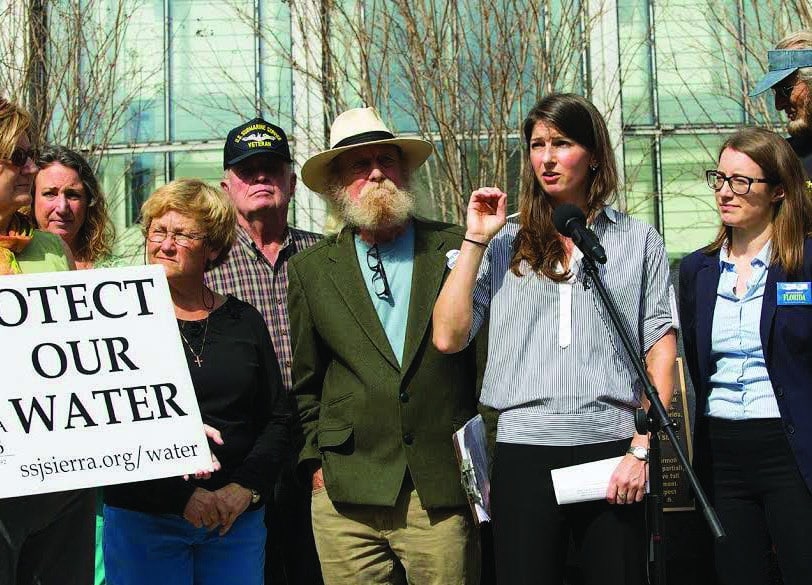
Clean Water Suit Filed Against World’s Second Largest Chicken Producer

NELC Staff Attorney Heather Govern details the ongoing violations by Pilgrim’s Pride Corporation’s poultry processing plant in Live Oak, Fla. at a press conference in Jacksonville, Fla.
JACKSONVILLE, FL—On March 9, NELC attorneys filed a citizen enforcement suit against Pilgrim’s Pride Corporation to address ongoing Clean Water Act violations at the company’s poultry processing plant in Live Oak, Fla. The complaint was filed in the U.S. District Court for the Middle District of Florida on behalf of Environment Florida and its members; Sierra Club joined the lawsuit as a co-plaintiff on April 4.
The lawsuit alleges that Pilgrim’s Pride, the second largest chicken producer in the world, has committed 1,377 days of Clean Water Act violations over the past five years by discharging pollutants into the Suwannee River in amounts that exceed legal limits by as much as three times.
The Suwannee River has been designated an “Outstanding Florida Water” by the Florida Department of Environmental Protection. The middle Suwannee River is famous for its 62 freshwater springs and is a major tourist attraction, popular with divers, boaters, and recreational fishers.
“Here is one of the world’s largest meat companies continually dumping pollution into one of Florida’s most beautiful rivers,” said Environment Florida State Director Jennifer Rubiello. “Our state officials have not taken strong enough action to protect the Suwannee.”
NELC’s complaint alleges that the plant’s violations contribute to low dissolved oxygen levels and thereby to algal blooms, a toxic phenomenon plaguing the Suwannee and other Florida waterways. Additionally, the complaint alleges persistent violations of toxicity limits, suggesting the plant’s wastewater is disrupting the survival, growth, and reproduction of aquatic organ- isms within the river system.
“As a biologist, I research the springs of the Suwannee River, and it is clear to me that any harm to this special natural resource is shameful,” said Bob Knight, Environment Florida member and President of the Board at the Florida Springs Institute.
“Here is one of the world’s largest meat companies continually dumping pollution into one of Florida’s most beautiful rivers.”
— JENNIFER RUBIELLO, STATE DIRECTOR OF ENVIRONMENT FLORIDA
NELC’s complaint seeks a court order requiring the Live Oak facility to comply with its Clean Water Act permit, as well as civil penalties against Pilgrim’s Pride as recompense for past violations and to deter future violations. Pilgrim’s Pride Corporation has operations in 14 states, Mexico, and Puerto Rico. The Live Oak facility processes live poultry into fresh and frozen chicken meat products, and also operates a broiler hatchery to produce chicks for distribution to growers. Pilgrim’s Pride is owned by the Brazilian company JBS S.A., the largest meat company by sales in the world.

